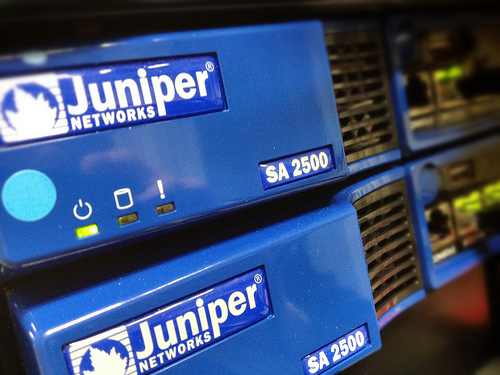Top Ten U.S. Corporations That Pay The Highest Taxes
There has been a lot of discussion as of late about the fairness of the U.S. tax code and how much both people and corporations should pay to the government. The most recent case was the scrutiny directed at Apple because of their alleged practice of hoarding cash in tax haven states around the globe including the Bahamas and Ireland. Yet although Apple was the target of the press, it is hardly the lone offender. Many U.S. companies have avoided paying higher tax rates by offshoring accounts since the 1980’s, and it is not illegal; and, despite the controversy surrounding these companies given their tax rates, many are still paying hefty amounts of revenue to the IRS. To get companies to pay more revenue to the U.S. Government is a matter of tax code policy, not a scheme by companies to skimp on their tax payments. There is merely a need enact legislation to enforce tax reform, which will be no small task given lobbyist influence in Washington on both sides of the political aisle.
Although reform may not be coming anytime soon, take solace in the fact that the top ten companies paying taxes to the U.S. government paid almost $115 billion dollars in taxes last year. And although the amount would be higher if all companies paid the full 35% commercial tax rate, such an amount of money is still impressive.
Here is a look at the companies paying the most taxes in the U.S.
10
Microsoft
Income tax expense: $4.57 billion
• Earnings before taxes: $20.03 billion
• Revenue: $72.93 billion
• 1-year share price change: -12.04%
• Industry: Software
Microsoft is the lowest company on the list paying slightly over 4.5 billion dollars to the federal government last fiscal year. Founded by Bill Gates in the 1970’s, Microsoft is the world’s largest producer of PC software, dominating the market by large margins. Other branches include its e-business sector, online marketing and analytics with Bing, or its gaming sector with products such as Xbox One. 2012 brought slower growth for the company; last year was the first time in over 5 years Microsoft didn’t pay more than 5 billion dollars in taxes.
9
IBM (International Business Machines)
Income tax expense: $5.30 billion
• Earnings before taxes: $21.90 billion
• Revenue: $104.51 billion
• 1-year share price change: 7.57%
• Industry: IT consulting
IBM is one of the oldest computer electronics companies in the world, and is also the second largest behind Hewlett Packard. With all its divisions and branches combined, IBM has over 440,000 employees worldwide. IBM’s longtime presence in the computer mainframe and server industry makes it a key competitor globally, despite competitors in Europe and Asia. The company also has a strong presence in IT, network consulting, and has started to venture into the growing cloud-computing sector. These diversified computing sectors has allowed IBM to maintain large revenues year after year, and thus, pay a hefty amount of taxes.
8
Berskhire Hathaway
Income tax expense: $6.92 billion
• Earnings before taxes: $22.24 billion
• Revenue: $162.46 billion
• 1-year share price change: 31.01%
• Industry: Asset management
Berkshire Hathaway has been a heavy hitter in investment capital for many years. Started by well-known billionaire Warren Buffet, the company has grown into one of the world’s most trusted and well known companies for asset management. Berkshire Hathaway has recently acquired large stakes in many other large U.S. companies to diversify its portfolio, including American Express, Coca-Cola, ConocoPhillips and General Electric. It also is known for one of the largest acquisitions in recent corporate history when it purchased the Burlington Northern Santa Fe railroad company in 2009 for a staggering $34 billion dollars. All these stakes in other companies has kept Berkshire Hathaway as one of the largest contributors for paying U.S. corporate taxes.
7
JPMorgan
Income tax expense: $7.63 billion
• Earnings before taxes: $28.92 billion
• Revenue: $91.66 billion
• 1-year share price change: 24.30%
• Industry: Financial services
JPMorgan Chase has been the product of a lot of negative press recently. The most well known mishap occurred when the bank took a $6 billion trading loss selling its London office properties. The bank subsequently agreed with the U.S. Comptroller of the Currency that it would improve its oversight on handling large transactions to avoid reckless capital waste. The loss also ruined the reputations of many in upper management; the U.S. Senate also got involved when a bi-partisan panel accused the bank of a cover-up. Despite all this however, JPMorgan’s earnings continue to rise, mainly as a result of its solid mortgage operations. This leads to more revenue to be paid in taxes, which is still a win for a cash-strapped Washington.
6
ConocoPhillips
Income tax expense: $7.94 billion
• Earnings before taxes: $15.42 billion
• Revenue: $60.35 billion
• 1-year share price change: -22.86%
• Industry: Energy exploration and production
ConocoPhillips is one of three energy companies to make the top ten on this list. ConocoPhillips was the fourth largest publically-traded company in the U.S. until it split its assets. One new company branch, Phillips 66, holds assets in refining and marketing operations. The rest of ConocoPhillips still focuses on energy exploration and production in the form of several holding companies. ConocoPhillips has many assets worldwide including in the Far East, and runs the deepwater drilling operations off the coast of China. This will surely lead to more tax revenue as the company continues to maintain its strong share in the global oil exploration and production market.
5
Wal-Mart
Income tax expense: $7.98 billion
• Earnings before taxes: $25.74 billion
• Revenue: $469.16 billion
• 1-year share price change: 21.87%
• Industry: Supermarkets
Wal-Mart Stores is the largest company in the United States and has jockeyed for this top spot for many years. Many of its competitors in ‘Big Box retail’, such as Sears, Kmart and J.C. Penney, have not had the success Wal-Mart has been able to maintain over the years. Wal-Mart’s annual tax payment has exceeded $7 billion since 2008; yet despite its successes, Wal-Mart is at a disadvantage. It will be hard to grow much more because the U.S. market is mostly saturated and grew at only 2.2% last year. The company helps to counter this by continuing to expand into emerging markets, such as Central America, China, and other countries in Asia.
4
Wells Fargo
Income tax expense: $9.10 billion
• Earnings before taxes: $28.47 billion
• Revenue: $79.45 billion
• 1-year share price change: 16.77%
• Industry: Banks
Wells Fargo is generally considered one of the four most successful U.S. banks, along with Citibank, JPMorgan, and Bank of America. Since the financial crisis in 2008, Wells Fargo’s stocks have risen more than all the other three banks. One reason for this is that Wells Fargo leans more on consumer banking, and its national customer base are in a few markets that it dominates. This keeps the bank’s costs low when maintaining their multiple branches nationwide. Wells Fargo’s annual tax bill dropped as low as $602 million in 2008, but is now in the top five of all U.S. companies (and at $9.1 billion) as the bank has done better every year.
3
Apple Inc.
Income tax expense: $14.21 billion
• Earnings before taxes: $55.96 billion
• Revenue: $164.69 billion
• 1-year share price change: -20.68%
• Industry: Computer hardware
Apple has been one of the fastest growing companies in recent memory, and thus has also rapidly grown its share of paid taxes. As Apple’s Mac products, iPads, and iPhones have grown in popularity, its tax payments have gone from $2 billion in 2009 to $4.5 billion in 2011. And it has increased threefold since then. But Apple is facing some new challenges for growth, which could threaten its top spot as a high tax payer and value as a company. Since 2007, Apple has been the dominant producer of smartphones. But Samsung passed Apple in smartphone sales two years ago. The iPad’s dominance has also been threatened as other tablets such as those operating on Google’s Anrdoid sytstem, Amazon’s Kindle Fire, or Microsoft’s Surface erode market share. Also, Apple’s growth in developing markets such as China and India are slower than many its competitors.
2
Chevron
Income tax expense: $20.00 billion
• Earnings before taxes: $46.33 billion
• Revenue: $222.58 billion
• 1-year share price change: 9.52%
• Industry: Oil and gas
Chevron is the second energy company on this list, and despite its size, is still bar far and away the second largest compared to the #1 company listed below. Yet Chevron is still the third largest public company in the U.S. based on sales, formally right behind ConocoPhillips. Like other large energy companies, Chevron sees the rising importance of natural gas, since natural gas currently accounts for 23% of the world’s energy consumption. The company has recently invested more capital into this industry as oil price volatility continues as a result of global demand and turmoil. Chevron has paid more than $10 billion a year in taxes every year since 2005 (except one).
1
Exxon Mobil
Income tax expense: $31.05 billion
• Earnings before taxes: $78.73 billion
• Revenue: $428.38 billion
•1-year share price change: 6.56%
• Industry: Oil and gas
Large energy companies have been among the largest payers of corporate federal taxes for years. The reason for ExxonMobil being the highest on the tax paying list is because of its size. It swaps with Wal-Mart each year for the spot as the largest publicly traded U.S. company by total revenue. Part of Exxon’s success is tied to the price of crude oil. A barrel of crude was worth $35 in 2003. The price reached $60 in 2006 and hasn’t been lower than $75 more than a few instances ever since. The price of oil rose above $100 in 2008, which pushed Exxon’s revenue to average more than $400 billion; it has been at or above this amount every year since. Whether Exxon can stay number one in both revenue and tax payments depends on several factors. The rise of new sources of energy such as solar, wind and shale-based fossil fuels will help determine Exxon’s fate.
Sources:
Forbes:
http://www.forbes.com/pictures/mef45kghl/which-corporations-pay-the-highest-taxes/
USA Today:



